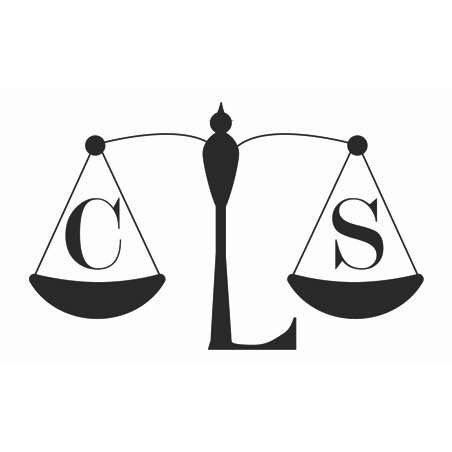Best Tax Lawyers in Yemen
Share your needs with us, get contacted by law firms.
Free. Takes 2 min.
Or refine your search by selecting a city:
List of the best lawyers in Yemen
About Tax Law in Yemen
Tax law in Yemen is governed by a combination of national legislation and regulations that focus primarily on income tax, corporate tax, sales tax, and customs duties. The country's tax system is overseen by the Ministry of Finance, and it is structured to help fund public services and infrastructure. In Yemen, the tax regime is underpinned by the General Sales Tax Law, the Income Tax Law, and various other regulations that relate to tax assessment, collection, and enforcement. It's important for individuals and businesses operating in Yemen to understand these laws to ensure compliance and avoid penalties.
Why You May Need a Lawyer
There are several situations where you might need legal assistance regarding taxes in Yemen:
- Complex tax situations: Navigating complicated tax issues or disputes with the tax authorities.
- Business compliance: Ensuring your business complies with all necessary tax filings and payments.
- Tax credits and benefits: Legal advice on maximizing tax credits or deductions.
- Dispute resolution: Representation during audit processes or resolving disputes with tax authorities.
- Understanding changes in law: Keeping apprised of changes to tax regulations and how they affect you.
Local Laws Overview
The taxation system in Yemen is influenced by several key laws, including:
- General Sales Tax Law: Applies to most goods and services, except those specifically exempted.
- Income Tax Law: Governs the taxation of individuals and businesses, with specific rates and allowances.
- Customs Law: Regulates tariffs and duties on goods imported into Yemen.
- Excise Tax: Applies to certain products like tobacco and alcohol.
- Property Tax: Levied on real estate transactions and property holdings.
These laws are complemented by enforcement regulations, which provide the framework for the collection and administration of taxes.
Frequently Asked Questions
What is the current income tax rate for individuals in Yemen?
Income tax rates in Yemen vary depending on the income bracket and are subject to periodic changes. It's advisable to consult the latest guidelines from the Ministry of Finance or a legal expert in Yemen for the most current rates.
Are there any tax reliefs available for businesses in Yemen?
Yes, businesses in Yemen can access various tax incentives and reliefs, especially if they operate within certain sectors such as agriculture or manufacturing. Consulting with a tax expert can provide more tailored insights.
How are sales taxes applied on goods and services?
Sales taxes in Yemen are generally applied under the General Sales Tax Law, affecting most goods and services. However, exemptions and varying rates may apply depending on the product or service type.
What happens if I miss my tax filing deadline?
Missing a tax filing deadline in Yemen can result in penalties, including fines and interest on unpaid taxes. It's crucial to meet the deadlines or seek legal guidance if you believe you may miss one.
Is foreign income taxable in Yemen?
Yes, foreign income is generally taxable in Yemen, but specific conditions apply. The tax treatment can depend on residency status and existing tax treaties.
Who needs to file a tax return in Yemen?
Individuals and businesses meeting certain income thresholds are required to file tax returns in Yemen. It's best to verify these thresholds with the tax authorities or a legal professional.
How often do tax laws change in Yemen?
Tax laws in Yemen can change relatively frequently. It's important to stay updated or consult with a tax lawyer to remain compliant with any changes.
What’s the procedure for appealing a tax assessment?
Persons aggrieved by a tax assessment can appeal through administrative or judicial channels. Early legal advice can be beneficial in navigating the appeal process effectively.
Are there taxes on property ownership in Yemen?
Yes, there are property taxes applicable in Yemen, including taxes on transactions and sometimes on ownership. Consulting a legal or tax expert can provide clarity based on your specific situation.
How can I ensure compliance with all applicable tax laws?
Ensuring compliance requires staying informed about current laws, thorough record-keeping, and often seeking regular consultation with a tax professional or attorney.
Additional Resources
For those seeking further information or guidance on tax matters in Yemen, the following resources may be useful:
- The Ministry of Finance: The primary governmental body responsible for taxation policies.
- Local Tax Administration Offices: For filing forms and queries on specific tax obligations.
- Professional tax consultants or legal firms specializing in tax law in Yemen.
Next Steps
If you require legal assistance with tax matters in Yemen, consider taking these steps:
- Contact a licensed legal practitioner with experience in Yemeni tax laws for a consultation.
- Gather all necessary documentation related to your tax situation to streamline the process.
- Consider ongoing legal or tax advisory support to ensure that you remain compliant with all relevant laws.
Proactively managing your tax obligations with the right legal resources can help in minimizing risks and optimizing your tax position in Yemen.
Lawzana helps you find the best lawyers and law firms in Yemen through a curated and pre-screened list of qualified legal professionals. Our platform offers rankings and detailed profiles of attorneys and law firms, allowing you to compare based on practice areas, including Tax, experience, and client feedback.
Each profile includes a description of the firm's areas of practice, client reviews, team members and partners, year of establishment, spoken languages, office locations, contact information, social media presence, and any published articles or resources. Most firms on our platform speak English and are experienced in both local and international legal matters.
Get a quote from top-rated law firms in Yemen — quickly, securely, and without unnecessary hassle.
Disclaimer:
The information provided on this page is for general informational purposes only and does not constitute legal advice. While we strive to ensure the accuracy and relevance of the content, legal information may change over time, and interpretations of the law can vary. You should always consult with a qualified legal professional for advice specific to your situation.
We disclaim all liability for actions taken or not taken based on the content of this page. If you believe any information is incorrect or outdated, please contact us, and we will review and update it where appropriate.
Browse tax law firms by city in Yemen
Refine your search by selecting a city.









